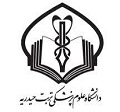(2020) The effect of Curcuma longa extract and its active component (curcumin) on gene expression profiles of lipid metabolism pathway in liver cancer cell line (HepG2). Gene Reports.
|
Text
2.pdf Download (910kB) |
Abstract
Objective: Dyslipidemia is a disorder in lipoprotein metabolism. This disorder could lead to atherosclerosis and it promotes the coronary artery disease and stroke. Turmeric and its active compound, curcumin, modulate the lipid metabolism and also have been used to treat the fatty liver. The present study evaluated the effect of Curcuma longa extract and curcumin on gene expression profiles of lipid metabolism pathway in human HepG2. Methods: HepG2 cell line was cultured in RpMI-1640 media. The cells in each well were incubated in various concentration of curcumin and hydro-alcoholic extract of Turmeric (15, 30, 60, 125, 250, 1000, 2000 μg/ml). The cell viability was investigated by MTT assay and the expression of lipid metabolism genes was determined using real-time PCR in IC20 concentration. Results: The proliferation of HepG2 cells significantly reduced in curcumin-treated and hydro-alcoholic extract of Turmeric-treated groups with increasing the concentrations. The expression of lipogenesis-related genes such as PGC1A, CPT1A and ACOX1 significantly increase in both treatment groups as compared with the control group. Curcumin and hydro-alcoholic extract of Turmeric significantly diminished the expression of lipid synthesis genes such as SCD1, SREBF2, and DGAT1. Conclusion: According to our study, Turmeric and curcumin reduce the viability of HepG2 cells in a concentration-dependent manner; in addition, these ingredients decrease the lipogenesis genes while they increase the lipid synthesis genes. This report suggests that Turmeric could remove the lipid and fatty acids. This herbal substance could be a helpful treatment for obesity and fatty liver. © 2019 Elsevier Inc.
| Item Type: | Article |
|---|---|
| Keywords: | Curcumin, HepG2 ,Lipid metabolism, Turmeric |
| Journal or Publication Title: | Gene Reports |
| Journal Index: | ISI, Scopus |
| Volume: | 18 |
| Identification Number: | https://doi.org/10.1016/j.genrep.2019.100581 |
| Depositing User: | پریسا مرادی |
| URI: | http://eprints.thums.ac.ir/id/eprint/1859 |
Actions (login required)
 |
View Item |



